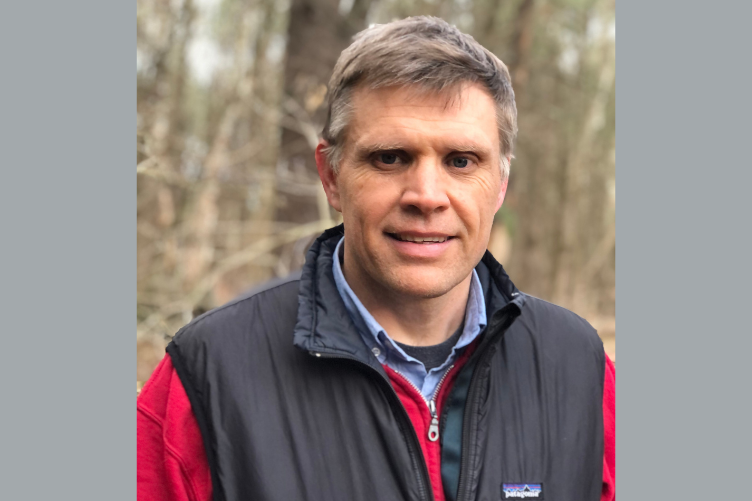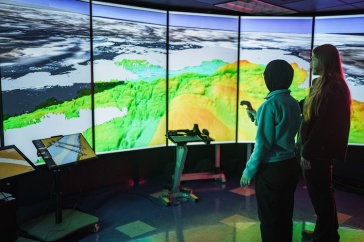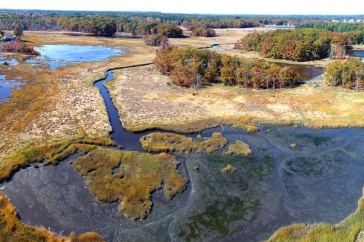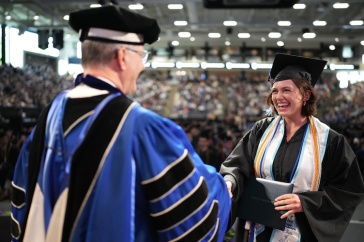
When Sam Harris joined the Peace Corps after college and went to Honduras, he met his future wife, a foreign-trained medical doctor. The New Hampshire native, who obtained a biology degree from Colby College in Maine, got married in 2003 and started a family. For years he worked in both finance and education. Then in 2017, when his wife transitioned to a new job as a nurse practitioner, he had the opportunity to pursue something new.
“I really wanted to get back into something that I felt was more in line with my goals and have a greater impact on society,” says Harris, a New Hampshire native who grew up north of Concord. “I looked at social work, but found myself pulled more toward public health.”
Harris enrolled in UNH’s master of public health program in the fall of 2018. He also completed a graduate certificate in data science from UNH over the summer of 2019. After an internship in the fall of 2019 with New Hampshire’s National Environmental Public Health Tracking Program, he began his required field study working with the New Hampshire Bureau of Infectious Disease Control – just before the COVID-19 pandemic hit the United States. He was completing his field study on a Hepatitis C project when COVID-19 cases were identified in Washington state, and it became clear that there was going to be community spread. His project was put on hold and instead Harris was able to move into a volunteer position to support the state epidemiologist with COVID-19 data collection and record keeping.
“I ended up applying for the environmental public health data analyst role and got the job and started in May 2020,” he says. “I was really excited for the opportunity to do something that was upstream work. The MPH program offered an excellent foundational introduction to the most current public health challenges facing the world today. The combination of technical data science training and background in environmental public health allowed me to become an immediate contributor in my new job.”
The field of public health has broadened, in part due to the growing demand for health care professionals with technical skills such as coding language and GIS mapping experience. Combine that with a global pandemic and the result is an explosion in demand for professionals who can address complex, intersectional global issues.
“COVID-19 has put the field of public health on the front page of every news source in the world for the last year and a half,” says Harris. “As the world increasingly faces challenges with climate change, the impacts of consumer waste and ever increasing medical care costs, the science of public health is going to be looked to more and more as a solution to a broad range of our 21st century problems. It’s been pretty exciting to see the state respond and evolve, it was and is a very dynamic time.”
-
Written By:
Callie Carr | UNH College of Health and Human Services | callie.carr@unh.edu | 603-862-0970
















































